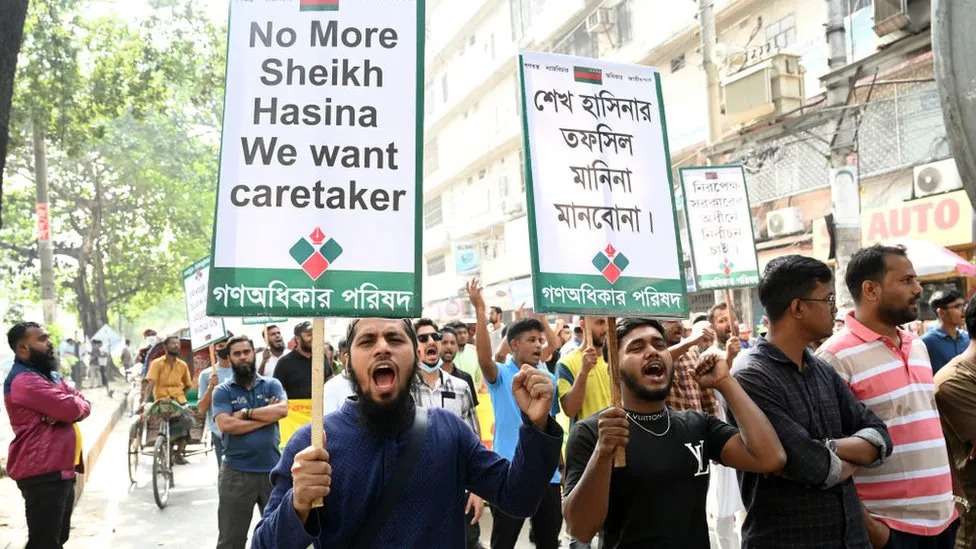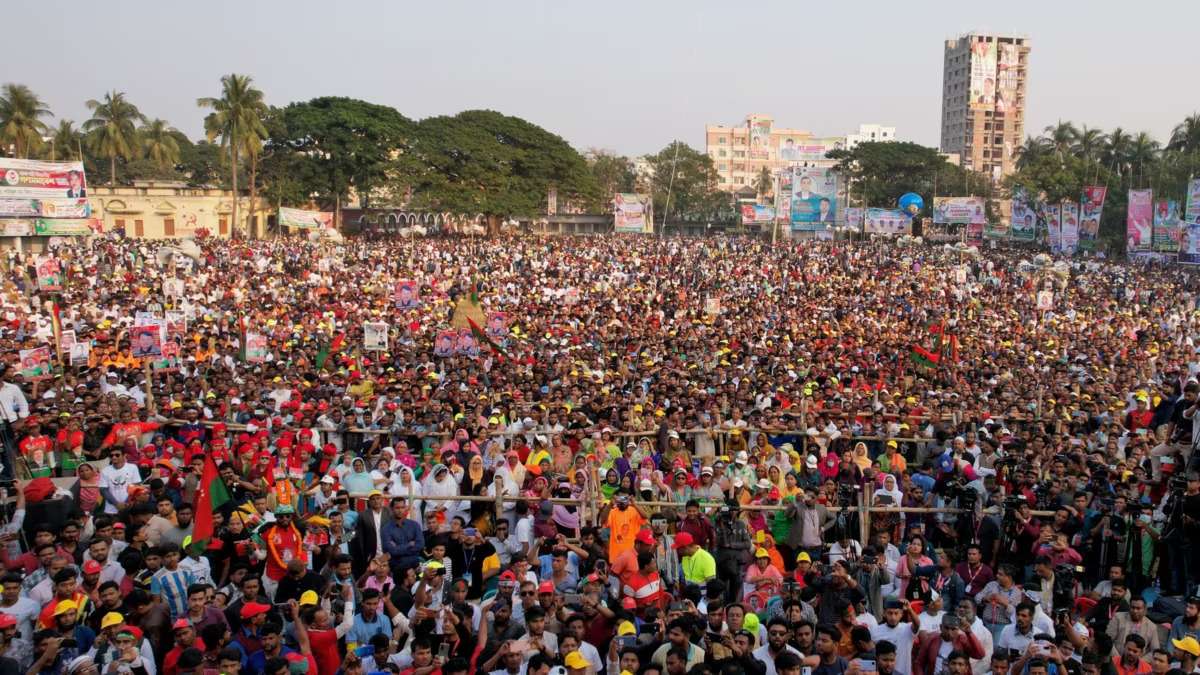Bangladesh is gearing up for general elections on January 7, but the outcome seems predetermined as the main opposition parties are boycotting the polls, with many of their leaders behind bars. This leaves the ruling Awami League poised to secure a fourth consecutive parliamentary term. The largest opposition party, the Bangladesh Nationalist Party (BNP), and its allies have expressed scepticism about Prime Minister Sheikh Hasina’s commitment to a free and fair election, leading to their call for her resignation and the establishment of polls under a neutral interim government – a demand firmly rejected by Sheikh Hasina. Consequently, the ballot will feature candidates solely from the Awami League, its allies, or independents, sparking concerns about the health of democracy in Bangladesh.
Democracy in Focus: Bangladesh Elections
Critics, including Abdul Moyeen Khan, a senior BNP leader, argue that “Democracy is dead in Bangladesh,” accusing Sheikh Hasina of growing increasingly autocratic over the years. The international community’s relatively muted response to these concerns raises questions about accountability. Law Minister Anisul Huq, defending the government’s position, contends that elections are determined by the participation of the people, emphasizing the presence of several political parties, excluding the BNP, in the upcoming election.
Sheikh Hasina’s tenure has seen Bangladesh transform from one of the world’s poorest nations to one of the fastest-growing economies in the region. Under her leadership since 2009, the country’s per capita income has tripled, and over 25 million people have reportedly been lifted out of poverty in the last two decades. The government, using internal funds, loans, and development assistance, has undertaken significant infrastructure projects, exemplified by the flagship $2.9 billion Padma bridge across the Ganges, expected to boost GDP by 1.23%.

However, the economic success comes at a cost, with critics contending that Sheikh Hasina’s administration sacrifices democracy and human rights. The COVID-19 pandemic has exacerbated economic challenges, with Bangladesh grappling with a soaring cost of living and inflation reaching around 9.5% in November. Foreign exchange reserves have dwindled from a record $48 billion in August 2021 to approximately $20 billion, insufficient for three months of imports. Foreign debt has also doubled since 2016.
Sheikh Hasina’s rule has been marked by accusations of repressive authoritarian measures against political opponents, dissenters, and the media. Notably, more than 170 global figures, including former US President Barack Obama and Richard Branson, penned an open letter urging Sheikh Hasina to halt the “continuous judicial harassment” of Nobel laureate Muhammad Yunus. The arrest of senior BNP leaders and thousands of supporters following anti-government protests further raises concerns about human rights abuses.

Despite the government’s denial of undemocratic practices, the opposition claims that over 20,000 party supporters have been arrested on alleged charges, while millions face cases filed against them. The government disputes these figures, asserting a lower number and attributing some cases to incidents from past elections. Human Rights Watch characterizes the arrests of opposition supporters as a “violent autocratic crackdown.” This stands in stark contrast to Sheikh Hasina’s early political career, where she championed multi-party democracy during the 1980s, joining hands with opposition leaders in pro-democracy street protests.

The current landscape reflects a drastic turnaround for Sheikh Hasina, who first assumed power in 1996 and lost the 2001 poll to the BNP. The political dynamics between the two women leaders, locally known as the “battling Begums,” have shifted, with Begum Khaleda Zia effectively under house arrest on corruption charges and facing health complications, leaving the BNP lacking dynamic leadership.
The systematic arrest and conviction of opposition leaders and supporters compound the challenges faced by the BNP ahead of the polls. Many argue that these actions are part of a deliberate strategy by the Awami League to weaken the opposition. BNP supporters, like Syed Mia, have resorted to hiding to escape persecution, with concerns about politically motivated arrests, disappearances, and killings. The deteriorating human rights situation has prompted international agencies to express alarm, with the UN High Commissioner for Human Rights highlighting a broader suppression of the opposition.
Despite the rising global concern, the international community’s response remains measured, prompting calls for Western nations to take tougher action. The European Commission, in particular, is urged to hold Bangladesh accountable for its democratic situation, with suggestions of reconsidering tariff-free access given to Bangladeshi products, especially in the garment industry, a vital economic sector for the country.
However, the geopolitical context adds complexity to the situation. India, a key regional player, opposes coercive actions against Bangladesh, emphasizing strategic interests in road and river transport access through Bangladesh to its northeastern states. The “chicken’s neck,” a land corridor linking Nepal, Bangladesh, and Bhutan, raises concerns in Delhi about potential vulnerability in a conflict with China. Sheikh Hasina’s alignment with Delhi, especially against ethnic insurgent groups in India’s northeast, has contributed to maintaining cordial relations.
Also Read : BJP MP Pratap Simha’s Brother Arrested in Tree Felling Scandal
China’s interest in extending its influence in Bangladesh further complicates the diplomatic landscape. Beijing, engaged in a regional power struggle with India, sees Bangladesh as a valuable ally. Thus, the diplomatic balancing act continues, with Sheikh Hasina navigating international relationships to safeguard Bangladesh’s interests.
As Sheikh Hasina appears poised for another term, challenges may emerge from economic realities. Bangladesh has sought a $4.7 billion loan from the International Monetary Fund to avert a balance of payment crisis, suggesting tough economic measures may be necessary post-election. Public fallout from austerity policies could pose an early challenge to Sheikh Hasina and her Awami League.

1 thought on “Bangladesh Elections: Strained Democracy Amid Economic Success and Human Rights Concerns”